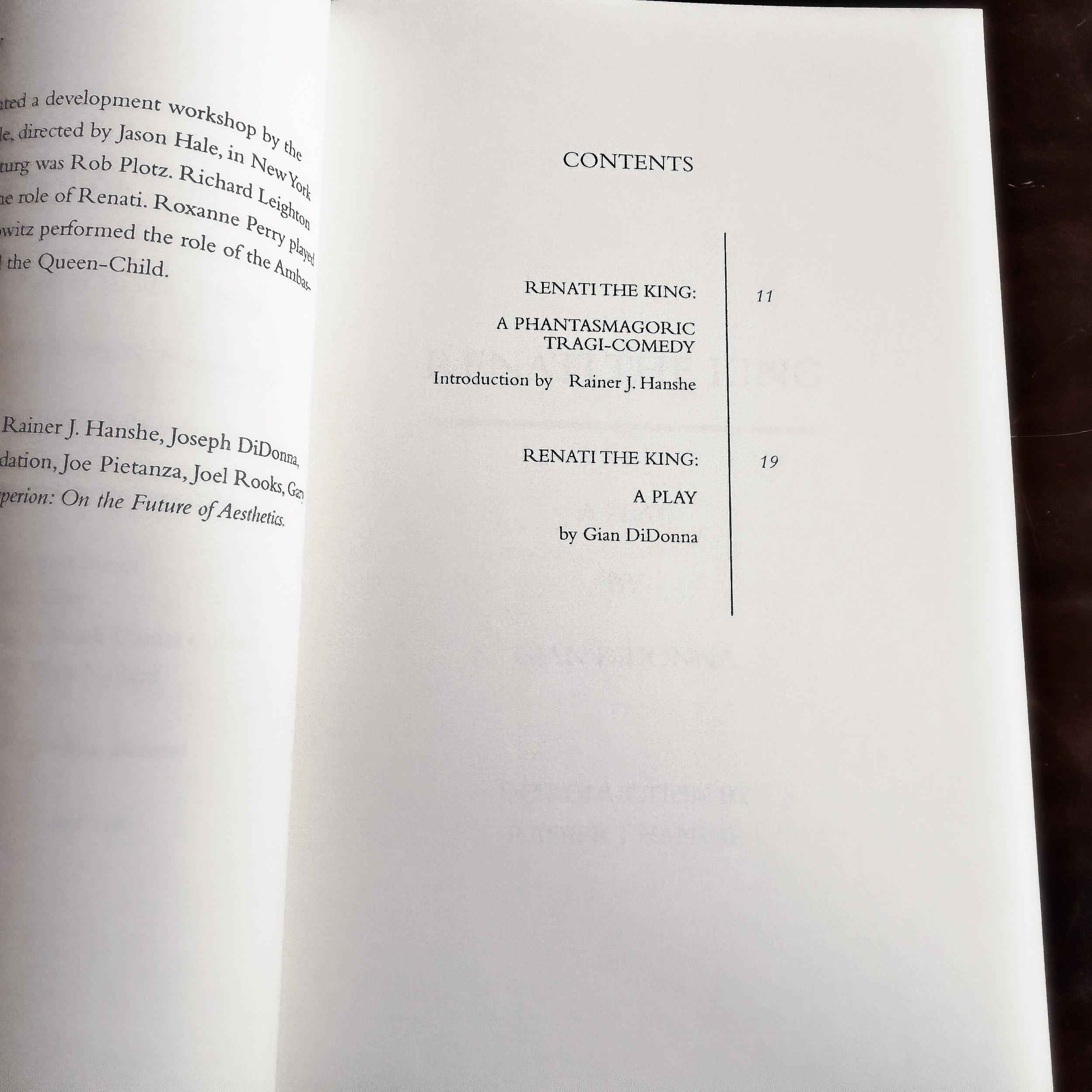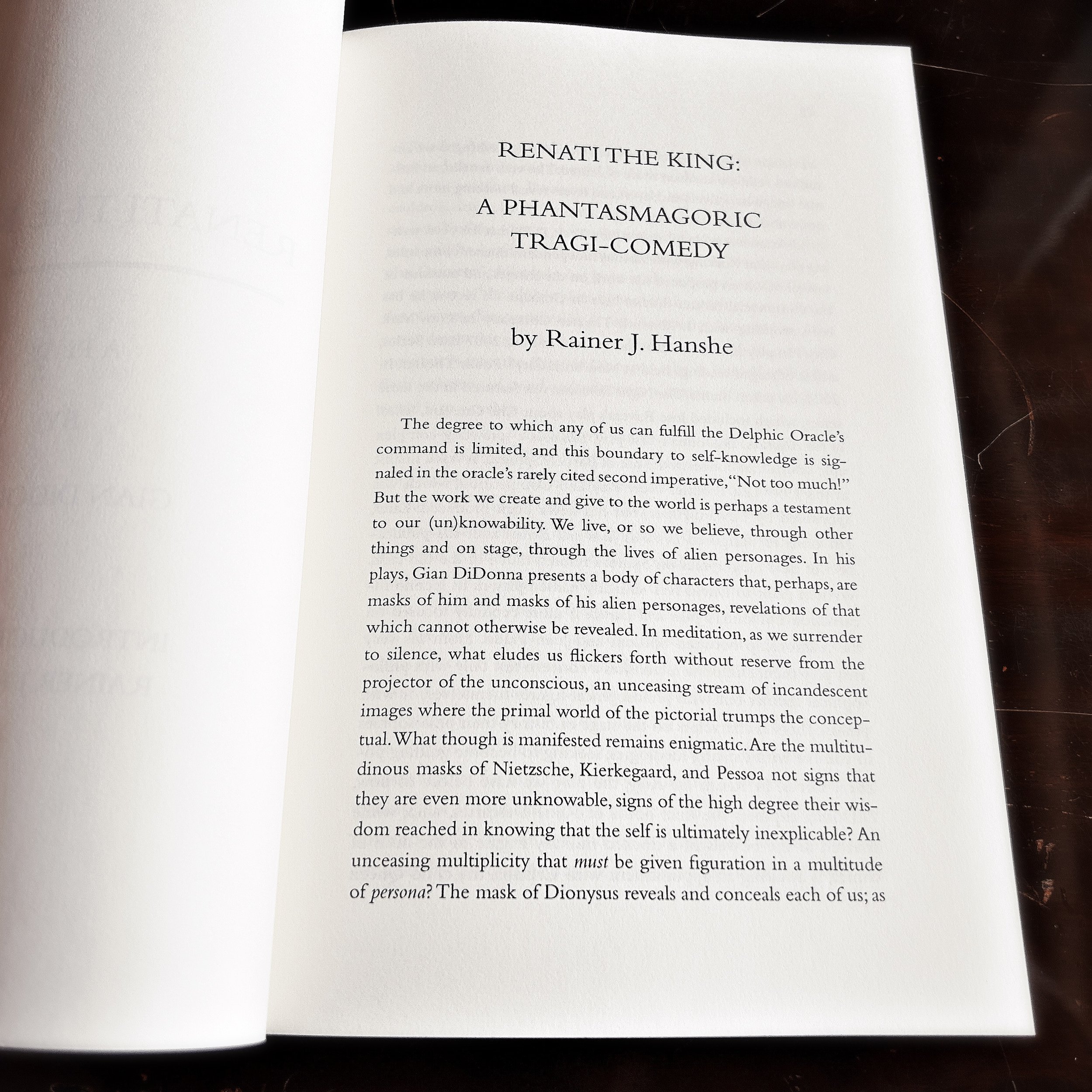RENATI THE KING
RENATI THE KING: A PLAY
GIAN DiDONNA
Renati the King is a play that explores the final hours of Rene Descartes. It is also a play about the perennial question of how love is addressed, who embodies it, and at what level of mastery it is exercised. Baroque and android-like characters intersect each other’s fates, and it is suggested that if human love is impossible in terms of constancy, then that of the posthuman is not.
Rainer J. Hanshe offers an illuminating counterpoint to this idea by situating the play in a wide context that includes careful considerations of the ancient Greeks, court politics, Nietzsche, and a host of poets ranging from Aristophanes to Genet and Beckett, and tracing the implication of philosophers becoming dramatists.
6×9” | B&W | 124 pp
ISBN 978-8792633040
CATEGORY
Theater and Drama
EDITION
Standard paperback 2010 | $17
NOTE
Study in performance




REVIEWS
This grotesquely beautiful play, like much of literature, employs allegory to present philosophical ideas; however, in keeping with the protagonist's (and Shakespeare's) view that all of life is a stage, Gian DiDonna takes the allegory a step further by presenting philosophy, itself, as theater. And who best to be cast center stage in this investigation into the nature of the soul, the purpose and limits of human creativity, the essence of love, and the telos of nature? : The father of modern philosophy, Rene Descartes, called Renati. Renati has been commissioned by the Queen of Sweden to find a cure for melancholy. It is a peculiar assignment, which is consistent with the peculiar tone of the unfolding events. It's unclear what is real or illusory but we're fairly certain that we are consistently occupied within the tenuous reality of the man known for the dictum, ‘I think therefore I am.’ Thus, quite possibly we're witnessing anthropomorphic thoughts in an ultra-reality, which serve to heighten our senses so we can properly absorb the issues involved. And DiDonna belligerently assaults our senses with displays of viscera intermingled with ghoulish humor that would tickle Hannibal Lecter. — DANIEL GREENE, Vice Voice

